What is a Supply Chain Analyst?
In order for supplies to reach their final destination, various individuals, routes, spaces and times must align in precise order, creating a supply chain. This process is not always smooth, and is often plagued by delays, miscommunication and other errors, which the Supply Chain Analyst is hired to iron out. This professional analyzes current processes and suggests improvements in order for supply to meet demand. These individuals may be hired in any industry, the most common being government, technology, food and manufacturing.
Supply Chain Analysts must be able to deal with stress and have the ability to efficiently multi-task, as their working day is often faced-paced. Most people in this field work in an office environment during regular business hours. Supply Chain Analysts often work in unison with the Supply Chain Manager and Planner and Purchasing Manager, reporting to the Senior Supply Chain Manager of Director of Supply Chain Management. The need to transport goods across a global market will maintain a need for this position, although the job growth will be slower than for other industries. The Bureau of Labor Statistics expects a 2 percent growth for Logisticians, a category that includes Supply Chain Analysts, with 2,060 new jobs created per year in the next seven years. The slow growth is due to the fact that many individuals manage supply chains in the manufacturing and government sector, which are expected to decline.
Want to add value to your job application? Using a professional cover letter builder can help you stand out from the competition. Use ours to build a stand out letter that will get you noticed.

Create your professional resume in just minutes.
- Choose from 20+ recommended templates
- Add pre-written experiences, skills and summary
- Download and send
Supply Chain Analyst Duties and Responsibilities
Analyzing Data
Suggesting Improvements
Interacting with Others
Supply Chain Analyst Skills
A successful Supply Chain Analyst must have a variety of skills, such as analytical, mathematical, logical and interpersonal. They must be able to review and analyze detailed data and make intelligent recommendations to improve business operations.
Core skills While Supply Chain Analysts employers value different skills, we did find similarities in the core skills required for this position, which are
- Supply chain management experience
- Inventory management
- Mathematical skills
- Experience analyzing business improvement
- IT development
- Interpersonal skills
- Data analysis
- Forecasting
Advanced skills With time, experienced Supply Chain Analysts add these advanced skills to their proverbial toolbox
- Consumer product experience
- Project management
Tools of the Trade Most Supply Chain Analysts utilize various tools to do their jobs, such as
- Structured Query Language (SQL) analysis tools
- Microsoft Excel
- Analytical models
- Mathematical analysis
GO PRO
Choose from fully customizable
GET PAST THE BOTS
Ensure compatibility with Applicant Tracking Systems
LOOK YOUR BEST
Save time with sleek and stylish professional design templates

Supply Chain Analyst Salary
Logisticians, employees that include Supply Chain Analysts, make an average annual salary of $74,300. Those who recently entered the field, or have worked for just a few years, make an entry-level salary of $45,800; however, professionals with many years on the job can make up to $116,000. Salary is often determined by location – three states have been found to offer candidates the highest average salaries – the District of Columbia, Delaware and Alabama, which offer $110,200, $88,200 and $84,800 respectfully.
Supply Chain Analyst Resources
Below, we have included helpful websites, associations, books and LinkedIn groups for professionals looking to enter the supply chain industry.
On the Web
IGD Supply Chain AnalysisThe Institute of Grocery Distribution (IGD) provides practical help in developing and implementing solutions to the issues that affect the supply chain.
The Premier Association for Supply Chain ManagementA nonprofit educational society for resource management, offering related educational programs.
Council of Supply Chain Management ProfessionalsHolds conferences, provides education and certifications for professionals in the supply chain management field.
Healthcare Supply Chain AssociationA broadbased trade association that represents 14 group purchasing organizations.
Books
Logistics and Supply Chain Management by Martin ChristopherA clearheaded guide to all the key topics in an integrated approach to supply chains.
Supply Chain Metrics that Matter by Lora M. CecereIn this book, the author evaluates the progress of over a hundred companies over the period of 20062013.
On LinkedIn
Logistics and Supply Chain ProfessionalsA community for professionals in logistics, warehousing, freight, fulfillment, and supply chain management.
Supply Chain Management Group (SCM)A group whose goal is to create of community of people with strong Supply Chain Management Profile (SCM).
Supply Chain Analyst Resume Help
Explore these related job titles from our database of hundreds of thousands of expert-approved resume samples:



